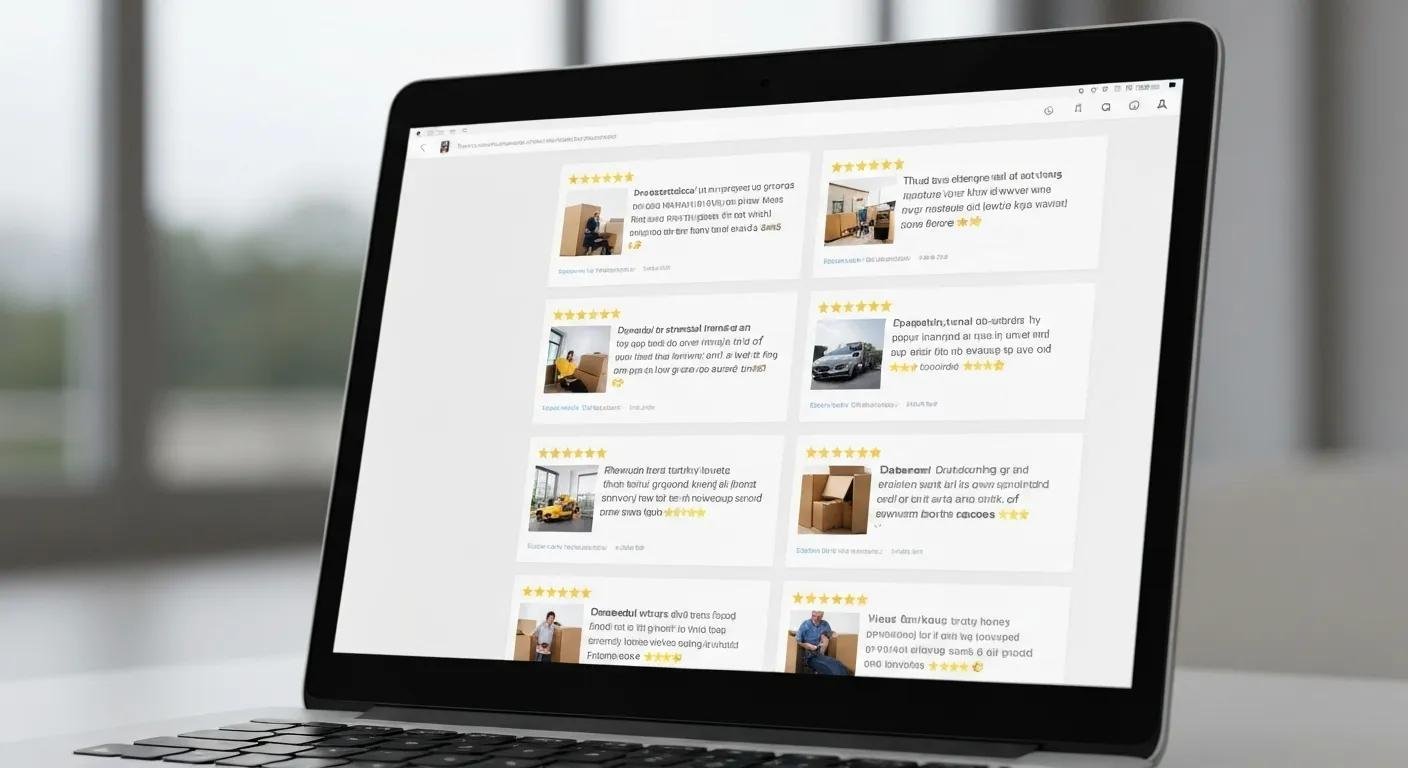Top Tips for Identifying Reliable Local Moving Companies in Your Area

Your Guide to Picking a Dependable Local Moving Company: Top Tips for Finding Trustworthy Movers in Your Area
Finding a reliable local moving company can turn a potentially overwhelming relocation into a smooth, hassle-free experience. Whether you’re wondering, “How can I find the most trustworthy local moving companies near me?” or simply seeking peace of mind, this guide offers practical steps to vet providers, understand reviews, get accurate estimates, and tap into local expertise. We’ll walk you through essential credentials, how to check online reputations, crucial questions to ask, best practices for in-home estimates, and the unique advantages that dependable Boston movers bring to your move.
What Credentials Should You Look For in Reliable Local Movers?
Essential credentials confirm a mover’s legitimacy and financial responsibility. Licensing ensures they’re operating legally and following state regulations, while insurance protects your belongings. Verifying these credentials is the first step toward building trust and avoiding unexpected liabilities during your move.
Before you start checking, consider how each credential contributes to accountability:
Confirming these credentials helps prevent surprises and sets the stage for further investigation, like checking online feedback.
How Do I Verify a Moving Company’s License and Insurance?
Start by finding the mover’s state license number through your state’s transportation regulator and then cross-reference their USDOT number on the federal registry. Next, ask for a copy of their insurance certificate and confirm the coverage dates and limits directly with the insurance provider.
- Search your state’s official moving authority website for active licenses.
- Enter the USDOT number on the FMCSA website to review their safety records.
- Carefully examine insurance policies for liability and cargo protection dates.
Confirming legitimate licensing and insurance is key to assessing a mover’s reliability and leads naturally into understanding their coverage details.
What Types of Insurance Should Reliable Movers Have?
Reputable moving companies should carry at least two types of insurance: basic liability coverage for damage caused by their negligence, and full value protection for complete reimbursement if items are lost or significantly damaged.
- Basic Liability: Covers damage based on a per-pound rate for lost or damaged items.
- Full Value Protection: Offers repair, replacement, or cash value for items that are lost or damaged.
- Supplemental Coverage: Provides additional protection for unique or high-value items like pianos or antiques.
Understanding these insurance options ensures your possessions are adequately protected and highlights why proper licensing is crucial for accountability.
Why is Licensing Important for Local Moving Companies?
Licensing acts as a seal of approval, confirming that a mover meets safety standards, financial responsibility requirements, and consumer protection guidelines. It also provides a clear avenue for resolving disputes if service expectations aren’t met. Verifying a license prevents unlicensed operators from jeopardizing your move and naturally leads to exploring social proof through online reviews.
How Can Online Reviews Help You Spot Trustworthy Moving Companies?

Online reviews offer genuine insights into a mover’s performance, professionalism, and communication style. By analyzing customer feedback patterns, you can get a clear picture of their reliability, responsiveness, and service quality—factors that often predict your own experience on moving day.
Here are the main places to find authentic feedback:
Where Should I Look for Genuine Moving Company Reviews?
- Google Business Profile comments, including star ratings and dates.
- Better Business Bureau (BBB) accreditation status and complaint history.
- Yelp listings, which often feature detailed feedback and service examples.
- Industry-specific forums where movers are discussed by professionals and consumers.
These platforms provide real user sentiment and help you understand how to interpret review content effectively.
How Do I Interpret Customer Reviews to Gauge Reliability?
Pay attention to recurring comments about punctuality, careful handling of belongings, clear pricing, and how issues are resolved. Recent reviews are generally more relevant than older ones, and companies that actively respond to negative feedback demonstrate accountability.
- Identify consistent positive feedback about their service.
- Note how the company addresses or resolves customer complaints.
- Check if reviewers mention whether timelines and costs matched expectations.
Understanding these indicators helps you distinguish excellent providers from inconsistent ones and prepares you to ask more formal vetting questions.
What Role Does the Better Business Bureau Play in Vetting Movers?
The Better Business Bureau assigns accreditation and letter grades based on a business’s transparency, the number of complaints, and how effectively they resolve them. An accredited mover with a strong BBB rating has shown a consistent commitment to customer satisfaction. Checking a company’s BBB standing reveals their track record in handling disputes and points toward opportunities for comparing in-home estimates.
What Questions Should I Ask to Effectively Vet Local Moving Companies?
Asking specific questions can reveal a mover’s experience, the range of services they offer, and their approach to customer care. A structured approach ensures you’re comparing providers fairly and can uncover potential red flags early on.
Here are the essential questions to get the conversation started:
Which Key Questions Reveal a Mover’s Experience and Services?
- How long have you been providing local moving services?
- What specialized services do you offer (e.g., moving pianos, assisting seniors)?
- Could you explain your process for handling claims if items are damaged?
- Do you require a deposit, and what is your cancellation policy?
These questions help uncover their depth of expertise and administrative transparency, leading into identifying potential warning signs.
What Are the Red Flags to Watch For During Mover Communication?
Vague or evasive answers, requests for unusually large upfront deposits, high-pressure sales tactics, and an unwillingness to provide written estimates are all warning signs of unreliable providers. Recognizing these behaviors early on protects your interests and naturally leads into using a formal comparison tool.
How Can I Use a Moving Company Checklist to Compare Options?
A checklist helps you organize your vetting process and compare companies side-by-side. Include items like license verification, insurance confirmation, review ratings, estimate type, and deposit requirements. Comparing each criterion ensures you select the most trustworthy mover.
Using this checklist provides a consistent framework for your decision-making and prepares you to secure accurate moving quotes.
Why Are Detailed In-Home Estimates Crucial for Reliable Moving Services?

In-home estimates provide an accurate assessment of your inventory, the space you’re moving from and to, and any logistical challenges involved. This transparency helps prevent unexpected charges, ensures fair pricing, and builds trust through clear communication about services and costs.
What’s the Difference Between Binding and Non-Binding Estimates?
Binding estimates guarantee the final price based on the inventory assessed, protecting you from unexpected cost increases. Non-binding estimates offer an estimated price range that may change depending on the actual weight or volume of your belongings.
Choosing the right estimate type helps limit financial risk and naturally leads to understanding the benefits of on-site surveys.
How Do On-Site Surveys Improve Moving Quote Accuracy?
An on-site survey allows movers to visually inspect your furniture, assess access routes, and identify potential obstacles. This detailed evaluation results in a tailored quote that accurately reflects the resources needed, minimizing discrepancies on moving day and setting clear expectations for everyone involved.
What Hidden Fees Should I Watch Out For in Moving Quotes?
Hidden charges can sometimes appear for packing supplies, navigating stairs, shuttle services, long carries, or handling bulky items. Always request a detailed breakdown of all fees and explicit confirmation that no additional costs will be added without your prior consent. Staying vigilant about pricing reinforces transparency and leads into the value of local knowledge.
How Does Local Expertise Impact the Reliability of Boston Moving Companies?
Local expertise means movers have an in-depth understanding of Boston’s unique challenges, such as narrow streets, parking restrictions, building access rules, and permit requirements. This specialized knowledge streamlines the loading, transit, and unloading processes, significantly reducing delays and logistical headaches.
Why is Familiarity with Boston Logistics Important for Movers?
Boston’s historic neighborhoods often feature tight alleyways, zones requiring special permits, and congested traffic. Movers who are familiar with permit procedures, optimal loading spots, and timing restrictions can avoid fines and traffic delays, making your move much more efficient.
How Does Horizon Boston Movers Demonstrate Local Expertise and Trust?
Horizon Boston Movers draws on over a decade of experience in the Boston area and uses a transparent, time-based pricing model to deliver dependable local relocations. Their licensed and insured team offers specialized services like piano moving, senior moving assistance, packing services, and coordination of parking permits, ensuring a seamless moving experience.
How Can Trusting a Local Mover Reduce Moving Day Stress?
A local mover anticipates neighborhood-specific challenges, communicates realistic timelines, and navigates regulations without guesswork. This proactive approach minimizes last-minute complications and gives you confidence that your belongings will arrive safely and on schedule.
Selecting reliable movers involves carefully checking credentials, researching reputations, getting precise estimates, asking targeted questions, and partnering with a local expert who has proven experience. By following these tips and working with a licensed, insured, and customer-focused team, you’ll significantly reduce stress and boost your confidence for your next move. Request a free, transparent quote from Horizon Boston Movers today to secure your trusted local moving partner.


